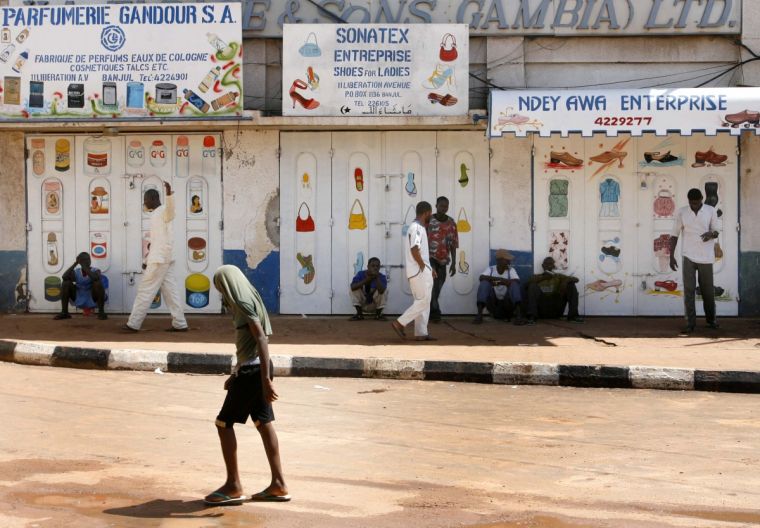While the EU pulls funds from Gambia over its human rights record, the Middle East steps in

The European Union is pulling the plug on funding to Gambia because of concerns about its human rights record amid concerns about the Islamification of the region.
It has withdrawn millions of euros of funding, leaving the mainly Muslim West African nation to rely increasingly on donors from the Middle East for development projects.
The shift in soft power is of concern to Western governments in a region where Islamist militancy in northern Nigeria and northern Mali is fuelling instability, diplomatic sources said.
"West Africa has a large, impressionable youth population that have no access to jobs. Their loyalty might be bought through aid, sometimes by those sympathetic to the Islamification of the region," said one diplomat.
Gambia was criticized by the United Nations Human Rights Council in October for restricting freedom of expression and numerous other rights violations.
In November, Gambia cut off dialogue with the European Union after President Yahya Jammeh returned from a visit to Qatar.
The EU decided unanimously in December that systematic abuse of human rights amounted to contravention of the Cotonou Agreement, an international accord that stipulates that aid can be delivered only in return for progress in human rights.
It took the decision weeks after Jammeh signed into law an act that could imprison homosexuals for life. There followed a crackdown on gays and lesbians, causing many to hide or flee into neighboring Senegal.
Initially, the southern EU states had insisted that Gambia continue to receive support in a bid to stem the flow of economic migrants from West Africa reaching European shores. Northern EU states pressed for sanctions.
Some 13 million euros of bilateral funding to Gambia has been blocked by lack of progress in several areas of human rights and rule of law in the last year, an EU spokesman told the Thomson Reuters Foundation in an email from Brussels.
The European Union is debating whether to release a further 150 million euros ($186 million) worth of development aid.
"We will continue to press for improvements related to our human rights concerns, and if progress is achieved, this will have an [positive] impact on funding decisions," the EU spokesman said, adding that a decision was expected next year.
Critics say withdrawing funding from Gambia would make way for other donors whose rights policies were less stringent.
"It's not surprising that Jammeh is seeking funds from other countries where homosexuality is outlawed," a separate diplomatic source in Brussels said, adding that Qatar and Kuwait had equally poor records on gay rights.
Jammeh cut off dialogue with the European Union in November, soon after he visited Qatar, where he said he had secured funds for transport and agricultural development.
Earlier this year, Gambia signed agreements with Turkey for assistance on policing and health, local media reported.
Gambia continues to receive support from the Kuwait Fund, which has pledged more than $80 million during Jammeh's two decades in power, according to the Kuwait Fund website.
On Jammeh's return from Qatar, Foreign Minister Bala Garba Jahumpa said Gambia would sever dialogue with the European Union and rejected what he said were attempts by the bloc to use its aid budget to have the homosexuality law revoked.
"As an independent Muslim country, we will not be tied to any bloc that promotes decadence and ungodly behavior," he said.
"We are no longer going to entertain any dialogue with the European Union, either directly or through the sub-regional, regional and international blocs of which we are members."
Source: Reuters











